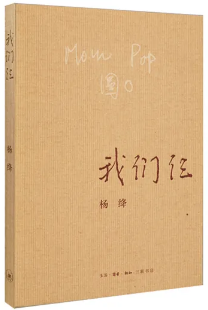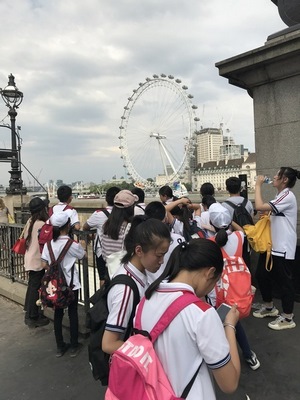
Whenever Wang Ziwan receives a series of voice messages on the WeChat messaging app from her mother, the 32-year-old woman looks at them and sighs. She dreads having to listen to them one by one, sometimes over a dozen in total, and having to listen again if she misses something. "I really don’t want to open them," she says. "But what can I do? She’s my mom."
每当王子宛收到她母亲发来的微信语音消息时,这位32岁的女人就会看着它们叹气。她很怕一条条地听语音消息,有时多达十余条。如果漏掉了什么,可能还要重新听。“我真是不想听,但有什么办法呢?妈妈毕竟是妈妈。”
Her mother-Song Zhihong, a 58-year-old retiree in Shanghai--has taken her daughter’s complaints on board, mostly. She is typing more messages on WeChat, the hugely popular social-messaging platform developed by Tencent Holdings Ltd. But texting seems cold, she says, and reading text on a phone screen is difficult for people her age. Ms. Song still uses voice messages when communicating with her old schoolmates.
58岁的上海退休母亲宋志宏每天都因为此事而受到女儿的抱怨。听了女儿抱怨,妈妈也在努力地在微信(腾讯开发的火热社交平台)上尽量打字,但她还是觉得,文字看起来冷冰冰的,而且对上了年龄的人来说很困难。她和同龄人聊天,也都用语音。
Ms. Wang says she has seen how her mom interacts with those friends on WeChat. "They use their phones like walkie-talkies," she says.
王子宛见过妈妈和朋友聊天的样子,打了个形象比喻:她们是把手机当对讲机用了。
Now, voice messaging is seen as the province of seniors, plus a few on-the-go groups such as salespeople and drivers. When I asked my followers on the Twitter-like social-media platform Weibo whether they use WeChat voice messages, the majority of the nearly 200 who responded said they disliked them and described heavy users as selfish, uneducated and old.
现在,语音消息已经成为老年人的专利,还有一些诸如销售和司机这样忙碌的群体会使用。当询问将近200个微博粉丝他们是否会发语音消息,他们大多数人都说平时不会发语音消息,并且认为频繁发语音的人自私、没文化、年纪大。
With nine out of 10 Chinese internet users on WeChat and with half of them spending over 90 minutes a day on the app to chat, read, work and shop, WeChat is where China’s national conversation takes place. For many Chinese, voice messages are seen as an intrusion, adding to information overload. Some don’t want to receive any at all.
中国网民中有90%的人每天在微信上聊天、阅读、工作和购物的时间超过90分钟,在微信上可以看到全国性的最新话题。对很多人来说,语音被看作是一种困扰,加上现代社会信息过载,没人想收到语音。
I reject WeChat voice message because it conveniences the sender but burdens the receiver, says Liu Zhaojian, an intellectual-property consultant in the commercial hub of Guangzhou.
作者采访了一些微信用户,询问他们对语音消息的态度,其中一个受访者刘兆建表示,语音对发送者来说确实很方便,但对接收者却是负担。
WeChat’s 2016 user report shows that while people over 55 made up only 1% of the platform’s user base, one out of five messages they sent were voice, compared with one in 10 for users under 21.
微信2016年年度报告显示,55岁以上用户虽然只占用户总数的1%,但他们发送的消息中五分之一是语音消息,但21岁以下的用户发出的消息中,语音占比则为十分之一。
While users take nine seconds on average to read 100 characters, they need 22 seconds to listen to the same 100 characters, excluding pauses, says Liu Xingliang, head of research at Beijing-based analytics firm Data Center of the China Internet.
DCCI互联网数据中心研究院院长刘兴亮的话说,读100字平均需要9秒,但是听100字语音平均却需要22秒。
Only when you listen to WeChat voice messages will you find out how long a minute is, Mr. Liu says.
他说,只有你听一条微信语音,你才知道一分钟有多长。

新年伊始,听说有好多同学声称自己去年的读书li...

不知是不是因为今年疫情的缘故,总觉得时间过得...

2020年即将过去,本年度的【好书荐读】系列也迎...
